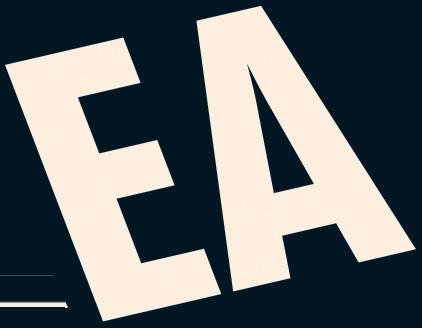


‘An absolute must-read’ Rich Roll




































‘An absolute must-read’ Rich Roll
































Nelson Mandela once stated that, ‘Education is the most powerful weapon which you can use to change the world.’ This book is dedicated to that very idea.
Nelson Mandela, Speech, Madison Park High School, Boston, 23 June 1990

Vermilion, an imprint of Ebury Publishing One Embassy Gardens, 8 Viaduct Gdns, Nine Elms, London SW 11 7BW
Vermilion is part of the Penguin Random House group of companies whose addresses can be found at global.penguinrandomhouse.com
Copyright © Ed Winters 2024
Ed Winters has asserted his right to be identified as the author of this Work in accordance with the Copyright, Designs and Patents Act 1988
No part of this book may be used or reproduced in any manner for the purpose of training artificial intelligence technologies or systems. In accordance with Article 4(3) of the DSM Directive 2019/790, Penguin Random House expressly reserves this work from the text and data mining exception.
First published by Vermilion in 2023
This edition published by Vermilion in 2024 www.penguin.co.uk
A CIP catalogue record for this book is available from the British Library
ISBN 9781785044496
Printed and bound in Great Britain by Clays Ltd, Elcograf S.p.A.
The authorised representative in the EEA is Penguin Random House Ireland, Morrison Chambers, 32 Nassau Street, Dublin D02 YH 68
Penguin Random House is committed to a sustainable future for our business, our readers and our planet. This book is made from Forest Stewardship Council® certified paper.
When I first went vegan, I took it upon myself to learn as much as I possibly could about veganism. I read books, watched documentaries, listened to academics and delved into the scientific literature. Throughout this process I also began to learn more about the opposing sides of the argument, yet the more I delved into the arguments of those who disagreed with veganism, the more confident and reassured of my own position I became. It didn’t take long before I then started advocating vocally and publicly for veganism.
Throughout my years advocating for veganism I have encountered every argument against veganism that exists, from the expected to the eyebrow raising. One of the main reasons for this is because I have put myself in countless situations where I have actively invited and encouraged people to give me their arguments against veganism.
Growing up, the prospect of actively seeking out diehard cowboys in the heartlands of Texas was never high on my list of priorities. However, after deciding I wanted to have interesting conversations about veganism with people, all of a sudden chatting with diehard cowboys became an altogether more intriguing idea.
Now, many years after I initially started talking about veganism, I’ve had the privilege of discussing it face-to-face in front of thousands of different people. These experiences have not only been illuminating in terms of understanding and hearing all the different arguments against veganism that
exist, but have also been invaluable in allowing me to stress test my rebuttals and responses. These conversations have essentially presented me with an abundance of opportunities to become a better communicator and a more accomplished advocate.
At the same time, I’ve also been immersed in the evergrowing body of scientific literature that discusses the issues related to our use of animals. I find myself constantly in awe of the incredible work and dedication being carried out by academics, data analysts and scientists, while also being dismayed by the misinformation and disinformation that sadly still spreads like wildfire.
I have also had the great honour to meet so many wonderful vegans who have shared their experiences with me and whose stories have inspired me deeply. From people who have been vegan for decades, to people who have just made the change – each person’s experience being individual and unique, yet often with difficulties and hardships that overlapped.
Sadly, time after time the vegans I meet tell me that they struggle to effectively talk about veganism with the people in their life, or they say they feel overwhelmed by all the arguments people use.
How to Argue With a Meat Eater is a book that has allowed me to bring together all of these different aspects of my work, drawing from all of these experiences and from everything that I have learnt and have had the privilege to be a part of so far. It is because of all of this that this book has become so important and personal to me. It is my hope now that this book becomes of great value to you too.
Whether or not you’re vegan, the chances are you’ve had some form of engagement with someone about veganism. Maybe with a friend or family member, maybe with someone online. There’s even a strong chance that that interaction resulted in an argument or a heated discussion, such is the provocative nature of veganism.
Perhaps even just by reading the word ‘veganism’ your mind has begun to think of the arguments you have heard or even perhaps used yourself to dismiss it. After all, aren’t we told that eating animals is part of the food chain, animal products taste nice and almonds are responsible for killing bees and using loads of water?
The truth is, veganism can mean many different things to different people. Depending on who you ask, veganism can be anything from colonialist, racist, privileged, extreme and dogmatic to another symptom of the woke snowflake culture stripping people of their freedoms. Not to mention it might even be tricking people into unknowingly cannibalising (yes, really).
So, it’s certainly not hyperbolic to say that there is a plethora of arguments that people use against veganism, and that there are a lot of questions and accusations that often get bandied about, even when they lack substance. It is for this reason, as a vocal advocate for veganism, that I never find myself short of work, continually rolling the rock up the mountain before something new is levelled at me and the rock rolls back down again.
It’s also why I wrote this book. I know all too well the challenges that vegans face and how difficult it is to counter the many different arguments that are levelled against us. However, by laying out these arguments and equipping you with the ability to confidently defend yourself, it is my hope that, unlike for Sisyphus, one day the rock won’t roll back down again.
Cannibalism aside, many of the arguments against veganism don’t seem unreasonable at first and are actually understandable when you realise how little most people know about how we treat animals and the issues that veganism covers. I also believe that it is important for ideas and beliefs to be challenged, and their rationales to be scrutinised, even if only to stress-test why we believe what we do. Veganism is no exception.
However, while I welcome logical, genuine and wellintentioned questioning of veganism, people often fall into the trap of parroting arguments or fallacies that they’ve read or heard elsewhere without fact-checking them. It is all too easy to see something online that aligns with what we want or believe to be true and never explore whether it actually is.
It is for this reason that this book will do two things. First, the opening chapters will arm you with the knowledge to become a more effective debater by exploring why people use the arguments they use, and also by discussing tips and techniques that will help you to debate more effectively. This will allow you to feel more confident and be more impactful in your conversations, ensuring that we can all have a healthier and more constructive dialogue around an issue that can often fall into unproductive disputes and tribalism.
Second, the book will outline the main arguments against veganism and provide a response to them. Because the claims you hear often depend on who is putting them forward, I have grouped them by the archetypes I have come across during my years of advocating for veganism. While these groupings can be a bit tongue-in-cheek, they showcase the wide variety of arguments that are levelled against vegans, as well as the people who present them.
The information contained within this book comes not only from extensive academic and scientific research but also from my years of experience debating people from all walks of life and with myriad different beliefs. Throughout the book I have included snippets from and references to many of these conversations and debates, including with hunters, farmers, TV presenters, heads of farming unions and lobby groups, and, of course, everyday meat eaters. I have included these to illustrate real-world examples of the arguments and rebuttals, and to provide further context to the topics being discussed.
In essence, this book is a vegan’s best friend. It’s the one I wish I had been able to read when I first stopped eating animal products and began advocating for veganism. If you are a vegan, it will leave you feeling empowered to walk into your next family gathering or your workplace knowing that you will not only be able to face but also rebut any argument that is thrown your way.
However, this book is not only for vegans. It is also for any non-vegan who is interested in scrutinising their beliefs and who is open to exploring the rebuttals to the arguments levelled against vegans. In fact, for those of you who are not vegan, I hope that this book presents you with the opportunity and intellectual stimulation to look at your lifestyle choices in a way that you have never done before and, in doing so, it inspires you to recognise the power you have to
create a positive difference every single day. After all, this book is a tool for empowering ourselves to become more critical thinkers, better conversationalists, and more informed, educated and motivated citizens – something that is important for all of us, vegan and non-vegan alike.
In 427 bc , a debate took place in Athens regarding the fate of the Mytileneans, a group of people who had revolted against Athenian rule. During his ultimately successful bid to convince the assembly to not slaughter all the Mytilenean men and enslave all the women and children, a Greek citizen called Diodotus said, ‘The good citizen ought to triumph not by frightening his opponents but by beating them fairly in argument.’
Unfortunately, many of the most important issues we face are played out through the weaponisation of fear. Every election seems to be a testament to that. The same is true for how veganism is discussed in the media, with Piers Morgan once claiming that vegan protestors were ‘terrorising old women’, and also describing himself as the ‘vegan resistance’, as if he sees himself as the Luke Skywalker of the anti-woke vegan rebellion, armed not with a lightsaber but a footlong meat sausage roll and diminishing arterial health.
Pro-meat hysteria is not just isolated to the UK. In 2021, Fox News hosts had a meltdown. Biden’s climate plans had outraged them because they were going to lead to red meat consumption being slashed by 90 per cent. Except there was a slight problem with their reporting: it wasn’t true.
Much to my disappointment, there was no plan to encourage Americans to reduce their consumption of red meat, let alone by 90 per cent. But who needs a fair argument when
you can frighten people instead? Unfortunately, nearly 2,500 years later, Diodotus could still make the same point.
The reason I mention these examples is because I strongly believe that the discourse around veganism is often reductive, ill-informed and insincere. Rather than being critically reflected on and analysed through a lens of curiosity, it is instead another victim of the transgressive desire to manufacture outrage at the cost of societal progression.
However, in my time advocating for veganism, I have been fortunate enough to speak to thousands of people about this very issue, and what has filled me with optimism and a constantly renewed sense of purpose is that, when given the opportunity and space to thoughtfully engage with the topic of veganism, people are not only understanding of its merits but also will often find themselves agreeing with its principles more than they imagined they would. And for good reason. Food is powerful and empowering. After all, how often do we have a choice in front of us that has consequences for the most pressing issues that our species face? Environmental collapse, antibiotic resistance, pandemic-causing infectious diseases, and, of course, the biggest driver of animal exploitation and suffering caused by humans. Our food choices present us with an opportunity to take a stand against all of these issues and many more.
And that is another reason why this book exists. I wrote it because our food choices are of the utmost importance, and because I want you to feel inspired, informed and empowered.
So use this book to arm yourself with the facts you need. Read it and re-read it so that you can respond to any argument that your family member, friend or colleague puts to you. Use the citations in the back of the book to look at all the research I draw on throughout, and feel emboldened to know that you can inspire others to reflect on their own
choices and make important changes. This book is your tool, so use it as such. Annotate it, underline points that are especially important to you, and make it your own.
Most importantly, I hope that by reading this book you can see that when given the opportunity to be fairly argued, veganism not only holds up to scrutiny but is also, as we vegans often claim, essential if we are to create a more ethical, kind and sustainable world.
At a talk I did in a school, a student asked me, ‘Do you dislike everyone who isn’t vegan?’
On the one hand I was saddened by the question, but I also understood why the pupil had asked it. I had spent the previous 40 minutes giving a presentation on the merits of veganism using words like ‘immoral’ and ‘wrong’ to describe the consumption of animal products. The obvious inference from this type of language is that I view people who are not vegan as immoral people, and the idea that I would dislike them was therefore understandable.
However, by no means do I dislike everyone who isn’t vegan. I have friends and family members who aren’t vegan, and I’ve had many incredible experiences in the company of non-vegans as well.
I might strongly believe that what we do to animals is immoral but context matters. We live in a complex and highly nuanced world where uncomfortable truths are hidden from us. Where behaviours, practices and industries that cause harm are normalised and ubiquitous. Where our laws and the behaviours of those around us reinforce the behaviours that we engage in.
Polarising issues are divisive for a reason, and the very nature of their polarisation can make it hard to ascertain which position is the one we should support.
When it comes to veganism, if you add in misinformation, disinformation and propaganda, and sprinkle on some psychological and sociological behavioural drivers, then it is no surprise that a belief system that is still supported by only a small percentage of the population is challenged and resisted by so many people.
Does that mean that all non-vegans are bad people who shouldn’t be liked? I believe not. Throughout my years of discussing and debating veganism I have learned many valuable lessons. One of the most important being that if we don’t understand why people think or act the way they do, it becomes much harder to change their minds about something. Now, understanding someone isn’t the same as agreeing with them. We can understand why someone thinks the way they do and still fundamentally disagree with, oppose and challenge them. However, attempting to understand why someone thinks, says and does the things they do is an incredibly important aspect of creating constructive and effective conversations. This is because it allows us to empathise with their position and rationalise why they believe the things that they do. This in turn means that when we are responding to them we can do so from a place of nuance that allows us to address their arguments in the best way possible.
For example, I often speak to international university students. If one were to say to me that they ate certain animal products because those products were prominent in their culture, while I know that this argument doesn’t hold up to scrutiny (see ‘The Social Conformer’), I might surmise that they were in part making it because they were currently living in a different culture to the one they grew up in, with all of the challenges that this presents. Perhaps they feel isolated or homesick as a result.
Because of this rationalisation, I would then respond in a
mindful way while at the same time highlighting that something isn’t morally justified just because it’s a cultural norm. In the next chapter (‘Becoming a More Effective Debater: The Core Skills You Need’), I discuss specific techniques and tips for responding to situations like this in an effective way.
As a species, we are sometimes the victims of our own success and are a little complacent due to our intelligence. Undeniably, we are capable of some truly incredible things but being human also brings with it imperfections, flaws, and everything else that comes as a consequence of our complexity.
The interconnectedness of our world and the growing coverage of so many complex and global issues has created a situation where we feel the need to be informed about more things than ever. We feel we have to formulate opinions on topics we know very little about, decide what our beliefs are about issues that scholars and academics dedicate their whole careers to trying to understand, and come to terms with scientific concepts that are normally investigated by experts.
Today we don’t just worry about food, shelter and companionship, but also about an event that happened thousands of miles away, or even something that is invisible to the naked eye or existential in nature.
These more abstract concepts, which often exist outside of our own immediate environments, are especially susceptible to unsubstantiated and erroneous beliefs and assumptions. While it is much harder to be convinced that up is down when up and down are right in front of us, if up and down
are out of sight and contradict what we want to believe, it becomes a much easier sell to convince us of the opposite.
Social media has created the perfect environment for complex ideas to be hijacked by those who know how to appeal to the masses and do so in a way that turns them against the scientific consensus. Who needs science when a social-media influencer is telling me up is down and down is up in 60 seconds? Oh, and I better make sure to subscribe to their monthly academy where they promise they’ll also tell me that left is right.
The G.I. Joe fallacy – from the G.I. Joe cartoon series in which each episode ended with the closing tagline ‘Now you know. And knowing is half the battle’ – is the incorrect idea that simply being aware of a bias is enough to overcome it. We might think, Well, I know that people spread misinformation and that lobby groups shouldn’t be trusted, so I won’t be fooled. But that knowledge doesn’t mean we are immune to the biases we know exist.
Unfortunately, knowing is not half the battle. This is why being critical of the information we receive is also important, as is taking the time to investigate claims before simply accepting them. It can be useful to scrutinise why something is the way it is, or why we might be being told something. Does this piece of information reinforce or contradict what we’ve been told previously and how does it fit into what we want to be true?
For example, we might be aware of how biases exist but then see a post about someone who says they almost died because they went vegan, all their teeth fell out, their skin went grey, they had less protein than a sea cucumber and their brain was foggier than a coastal town on a cold morning. All of a sudden that unsubstantiated anecdote creates an emotional reaction that reading through a scientific paper about the health benefits of a plant-based diet never could.
However, if we can gain a sense of perspective by acknowledging the response we’ve had and why we’ve had it, we can gain some sense of objectivity and further explore the claims being made to see if they’re substantiated.
Anecdotes more often than not provide the weakest evidence but are frequently the most effective means of dictating what people actually believe about something. And the thing is, most of us know this to be true, yet anecdotes and personal stories still remain one of the best ways to convince someone of something, irrespective of what the evidence actually shows.
Because of faulty anecdotal evidence, you can find people who will swear that drinking urine cured them of every ailment and that drinking bleach is the cancer-curing medicine that the pharmaceutical companies want to keep hidden from us. These people place too much emphasis on the opinions and anecdotes of non-authority figures and in turn ignore the work of experts, academics, scientists and organisations whose life work and research should form the basis of what they understand to be true.
Even from the perspective of veganism, I often get asked during interviews about how going vegan made me feel, but that’s the wrong question. The question should be: what does the body of evidence show?
In practical terms, one of the most impactful questions I ask people is ‘How do you know that?’, because asking people how they know something is a great way of exposing biases or problems with their sources of information. One of the most telling responses to that question I had was when talking to a fisherman who stated that fish don’t feel pain. I asked him how he knew, and he replied, ‘From other fishermen.’ In another conversation, a student stated in regard to animals, ‘They don’t have feelings in the same way we do.’ In response I asked him, ‘How do you know that?’ To which he smiled sheepishly and said, ‘I don’t know that.’
Exposing people’s biases and the flaws in their sources of information increases self-awareness, as it forces them to scrutinise their beliefs and can convince them to reconsider their positions. Importantly, it also encourages them to become more critical in their decision-making and of their sources moving forward. Sadly, misinformation and disinformation spread so widely because of a lack of evaluation from those receiving it, so revealing this fallibility to people can improve their information literacy.
In 1912, a man named Charles Dawson claimed that he had made a discovery in East Sussex of hugely important significance. He had uncovered the fossilised remains of a previously unknown species of early human that became known as the Piltdown Man. It was claimed that this discovery was the socalled ‘missing link’ between ape and man.
In the nineteenth century, archaeologists in France had discovered Cro-Magnons and archaeologists in Germany had discovered the Neanderthals. Just five years earlier than Dawson’s discovery, Heidelberg Man had been discovered in Germany as well. However, Britain had no such findings to its name – until Piltdown Man. European and American scientists approached Piltdown Man with a considerably larger amount of scepticism than their British counterparts, suggesting that there had been a mistake, as the findings fundamentally altered our understanding of human evolution. However, in the UK , the story was for the most part accepted in good faith.
Then, in 1953, it was finally confirmed what had been
suspected by some all along: Piltdown Man wasn’t real. It had been a fraudulent hoax carried out by a scammer and an opportunist, and improperly challenged by a nation desperate to make its archaeological imprint and reinforce nationalistic pride during a time of increasing conflict and competitiveness in Europe.
Unfortunately, when influenced by strong and persuasive drivers, people’s ability to make rational decisions can be impacted by their desire for something to be true. This is called ‘motivated reasoning’. Simply put, people use their emotional biases to create justifications or make decisions rather than being guided by what is accurately shown by the evidence. This is pertinent to many areas of life, including what people do to animals.
What meat eater wouldn’t want to believe that farmed animals are good for the environment and that eating them isn’t an ethical concern? All of a sudden they would be able to eat steak and not feel like they were betraying their desire for climate action. They would be able to have what they wanted and still think of themselves as being ethical at the same time. What people want to be true often becomes what they convince themselves is true.
People are constantly searching for justifications that not only allow them to keep eating animal products but minimise or completely invalidate the reasons why they shouldn’t. Does it matter if the evidence doesn’t support that position? Well, that all depends on how badly they want to keep eating steak.
Motivated reasoning is similar to confirmation bias, whereby people have a tendency to seek out information that aligns with their existing beliefs or what they desire to be true. They then ignore information that is inconsistent with their beliefs, opting to simply reaffirm what they want to be true, rather than investigating what is actually true.
Case in point: a post went viral on social media in early 2023 in which a photo of the bones belonging to a vegan person was depicted alongside one of the bones belonging to a non-vegan. The vegan bones were shown to be less strong and less dense, and the caption accompanying the images stated that plant-based diets supposedly increase the risk of bone fractures. The post was viewed and reshared by millions of people. There was a problem, though. The photos weren’t comparing vegan bones and non-vegan bones at all – they were images taken by NASA to show the impact that being in space has on bone density.
The person who originally shared the misrepresented photos believes that people who don’t eat red meat are doing so because of mental weakness and have been programmed by nefarious groups that want people to stop eating meat so that they can be controlled. This person is the Charles Dawson and meat eaters are the eager audience too excited and ready to believe what he has to say to actually stop and verify it. And this is why confirmation bias is so dangerous. Who’s going to spend time reverse-image-searching and factchecking the information they are seeing on social media, especially when what they’re seeing is actually what they want to be true? After all, if you are desperate for Piltdown Man to be real, you’ll convince yourself he is.
Understanding how motivated reasoning works is essential, as it shows the importance of using good-quality sources. If we are advocating for something, being aware of what trusted and highly regarded sources are publishing is an important way of arming ourselves with the necessary information. It also means we are more capable of identifying less credible information or claims that contradict the scientific evidence.
So be on the lookout for credible scientific journals, studies
that analyse data from a multitude of different studies (referred to as meta-analyses), and a consistent theme within the scientific literature. If you read something in a newspaper article, in a blog or on social media, try and find the root of the claims to see whether what you have read has been substantiated.
If you ask someone how they know something and they can’t remember off the top of their head where they saw the information, ask them to send over their sources after the conversation has ended. Likewise, offer to share your sources with them. That way they can have a read through in their own time and juxtapose their claims and sources with yours.
People often overestimate their own competence or knowledge about a certain issue. I’ve lost count of the number of times people have confidently asserted to me that it is vegans who are destroying the rainforests because of their soya consumption, or that humans don’t do things to animals that are in fact commonplace. This type of bias is known as the Dunning–Kruger effect, in which people without knowledge in a certain area feel as if they have the authority to make assertions about it.
Veganism is one of those issues that very few people have actually explored properly yet most have an opinion or belief about. Instead of seeking a substantiated view, people perceive themselves as knowing more about it than they actually do. Because veganism pertains to our individual choices and their moral impact, it’s a topic that people especially want to view themselves as being right about.
Importantly, because there is an increasing amount of conversation about veganism, what people do to animals is now
often discussed in terms relating to ethics and sustainability. This puts consumers in a tricky situation. Being ignorant about something that people are being told is important presents them with a potentially uncomfortable situation. They can fall into the trap of wilful ignorance, but while this might provide somewhat of a safety blanket from any cognitive dissonance, ultimately trying to remain ignorant about veganism is revealing in itself.
Alternatively, the need to validate and defend the consumption of animals means people simply align with the information that tells them what they want to hear. That way they can feel like their actions are substantiated and they are more educated about the issues than they actually are. This is problematic, as not only does it disincentivise people from researching further, but it can give them a reinvigorated sense of conviction around what they’re doing.
This is why it’s important that people take time to reflect on their beliefs, which is an especially pertinent point for any non-vegans reading this, but applies to all of us more generally too. We should question ourselves and where the information we are consuming is coming from. It’s important that we get out of the echo chambers that we can find ourselves in. Perhaps we can talk to someone who disagrees with our position and listen to their viewpoint and how they challenge ours. Or perhaps we can simply research the opposing point of view to our own.
While it can be frustrating, recognising that people often have a limited understanding of the issues can also push us to be more empathetic and patient. After all, even some vegans had negative opinions and beliefs about veganism before they made the change. So this understanding makes us more respectful and constructive. Rather than being condescending towards someone, we can use our own experiences and awareness of how people can change to instead foster a
growth mindset and promote intellectual honesty through a critical reflection of their beliefs.
Rather than being exasperated by people’s lack of understanding, we can use the opportunity to focus on education and learning so that we can point out the gaps in their knowledge and hopefully empower them to take the time afterwards to actually look into the issues with an open mind.
As veganism continues to get caught up in the culture wars, the way that people view veganism is increasingly susceptible to the bias of their political identities, meaning that they form opinions based on their political stances rather than on the merits of veganism and the evidence for and against it.
The danger of such thinking is it creates tribalism and pigeonholes something in such a way as to make it alienating to huge swathes of people. It is dangerous to feel that you have to think a certain way, or you should look for a certain type of criticism of something simply based on how you wish to be perceived and identify.
There is also the fear of being alienated from a community or diluting a form of identity that people hold to be important. Does a so-called freedom-loving, Fox News-watching Republican hate veganism because they have evidence-based reasons to hate it or because they think they should? What would going vegan mean for their identity credentials? If they told their freedom-loving, Fox News-watching Republican friends that they no longer ate steak, would that make them seem a little bit less freedom-loving, or even a little bit less of a patriot?
So, at what point are our views truly a reflection of what
we believe as opposed to merely a product or extension of what we think we should think or want to think based on our environment, our past experiences, our peers, or our desire to uphold a certain identity?
The clothes we wear allow us to showcase our identities and helps others understand what our personalities are like. They allow us to present ourselves to the world in the manner in which we wish to be presented. Our food choices and moral beliefs can also be an extension of how we want others to perceive us. However, when we view something based on how it lines up with how we wish to be perceived we diminish ourselves as critical thinkers.
Of course, what I have just described is perfectly fine when people’s outward-facing appearances and beliefs are informed by things such as musical taste. However, when they are dealing with issues that concern the rights and wellbeing of others, to adopt this approach means they are no longer acting from a place of rationality, something that is incredibly important when dealing with matters of this serious nature.
Discussing issues rationally using evidence and critical thinking creates a more collaborative approach and allows people to make informed choices. After all, these are not just decisions that pertain to an individual’s life and experiences – thinking rationally allows people to encompass others who are also impacted by the choices they make. This is especially important considering non-human animals are unable to represent themselves in the same way that we can. Not to mention they are also kept away, locked in farms and slaughterhouses, where people’s ability to empathise with them is reduced. Because of this, it is vital that people view this as an issue that exists beyond the end of their own noses. To do so requires them to be intellectually honest and reflective.
Unfortunately, people often operate using their ego, viewing the world from the position of ‘I’ and making statements like ‘I don’t want to change’ or ‘I want to eat meat.’ In doing so, they are framing the issue as being one whose importance is superseded by what they want, rather than what is conducive to a better world all round.
People’s detachment from what happens to animals means it’s hardly surprising that for so many the question of veganism is grounded in the question of whether or not they want to stop eating animals, rather than whether stopping eating animals is the right thing to do. So, in such a situation, it is wise to find commonality and understanding, rather than attacking the person for an argument that appears selfish in nature.
One way to do this is to simply explore the edges of a person’s argument so that you are creating a rebuttal within their moral framework. An example of this came up during a debate I had with a student called David who made the argument that it’s acceptable to eat animals because it’s pleasurable.
Me: So it’s OK to do something to an animal if we can get pleasure from it?
David: If it’s painless.
Me: So what if we tranquillised an animal and then sexually exploited them?
David: No, I don’t agree.
Me: No? Why not though?
David: I don’t know. I would just not feel comfortable.
Me: They’re not suffering and it’s for enjoyment.
David: That’s true. That’s a valid point.
Me: So why is that wrong?
David: I don’t know. It’s a good question.
Instead of making a statement about why killing animals because they taste good is wrong, I instead used his argument to illustrate that not even he subscribes to it when it’s consistently applied.
Sadly, viewing veganism through the lens of political identity, culture war issues or just from the position of each individual means that the animals are overlooked, as are all the other problems associated with animal products. This means we need to encourage people to view these issues from a different perspective. We can do this by prompting them to reflect on how they would feel if they were in a similar situation to an animal. Alternatively, perhaps they have a pet and we can ask them to think about how they would feel if someone treated them in the same way we treat other animals.
We can also appeal to shared values: do they think we should care for animals? Are they worried about the climate crisis? We can highlight the interconnectedness of these issues and how the consequences of animal farming impact them too. And as well as exploring the edges of their arguments, we can ask people to explain their political beliefs if it’s relevant to the conversation. If they’re a fiscal conservative, how do they feel about the huge financial handouts given by the State to prop up animal farmers? If they’re a socialist, what do they think about the monopolisation and corruption found within the animal farming industries, and what about social justice with regard to animals?
Vegans are against farmers. Vegans are against meat eaters. Vegans are against freedom and personal choice. Vegans are against normal behaviours and are extreme. People consistently view vegans as attempting to create conflict and being inherently antagonistic. In doing so it can create the impression that being vegan is not desirable.
One of the easiest ways to not engage with someone is to perceive that person as being dislikeable. The same works with veganism. If people can paint an image of veganism as being something that is wholly unlikeable, or can think of vegans as conforming to an undesirable expectation, they can instantly distance themselves from what it is we are advocating for.
Now, don’t get me wrong, vegans can have an optics problem. We can sometimes be our own worst enemies, presenting a version of veganism or a characterisation of what being a vegan means that does significantly more harm than good. The stereotype of the aggressive activist shouting at people springs to mind. Yet descending into ad-hominem attacks or ascribing certain traits to vegans to make veganism seem unappealing is a disingenuous way of attempting to avoid the arguments we make.
However, it does present us vegans with an opportunity to leave someone with a more positive impression of veganism. This is why, as vegans, one of the most important things we can do to soften peoples’ opinion of veganism is to not conform to the stereotype that they might expect from us. If the person we are talking to expects that we will shout at them or be unreasonable, one of the main positives of not doing so is that we will lead that person to doubt their initial negative perception and create a more positive impression of
veganism in general. Plus, by removing one of the main barriers that people use in order to not engage with the issues, we can create a situation where that person is more likely to discuss what is truly important: the merits of and arguments for veganism.
Vegans are often the ones labelled as irrational or overly emotional. And while I would concede that caring about the suffering of others has an emotional aspect to it, caring about the rights of others is also a deeply logical position to take. It is not irrational to challenge the inconsistencies and contradictions inherent in people’s treatment of some animals compared to others, nor is it a sign of emotional weakness to be appalled by the infliction of harm on sentient beings.
So while vegans are accused of acting from a place of irrationality, the irony is that even when presented with the rebuttals to their arguments, many non-vegans still won’t change their minds and will continue to support industries that are responsible for doing things that violate many of the beliefs that they say they have. After all, who isn’t against animal cruelty? More or less everybody says that they are, but are people actually against animal cruelty when they continue to support the industries responsible for causing more human-inflicted suffering, harm and death to animals than any other?
Rationally speaking we would surely say not. Yet here we are in a situation in which the same people who say they are against animal cruelty are in fact supporting and perpetuating the industries responsible for the worst examples of it. Try as hard as they might, that square piece will just not fit in the round hole.
The fact that some people don’t change their views when presented with rational rebuttals of their arguments might sound rather demoralising. However, it is well documented that people’s minds are changed through repetition. So it’s not
surprising that many people don’t necessarily switch their points of view the first time they are presented with important information, or have their worldview and beliefs challenged. We are creatures of habit who find comfort in the status quo and, as such, to change someone’s behaviours often requires planting seeds and encouraging them to germinate.
This is why it’s so important to understand the strong connection between beliefs, actions and psychology, because clearly it’s not as simple as knowing that something is an issue, or indeed even knowing what the facts are. People are complex and so are the drivers of our behaviours.
People’s consumption of animal products is tied to so many other aspects of their lives, from their desire to be comfortable and not isolate themselves from cultural norms or cause friction in their personal lives to how they identify as moral beings with agency. Eating food in particular is not simply about the acquisition of calories and nutrients. Food is an integral part of people’s families, social dynamics and cultural identities. A person might have fond memories of eating a roast dinner with their family, or perhaps their grandma makes the best lasagne and they have shared so many happy experiences with her because of it. Perhaps they have always gone to the same restaurant with their partner or ordered the same takeaway with their friends. Food is pleasure, it is social, it is a mechanism through which experiences can occur and memories can be created. Food is a tool through which we can feel prosperous, connected and a part of something bigger than us.
To understate all that food represents and all that it has historically represented is to do a disservice to something that
is of the utmost importance if we are ever to create healthier conversations around food choices.
When we talk about veganism, we are not simply discussing the merits of eating plants over animals – we are fundamentally challenging all of these different aspects of people’s lives and identities. Can that person share those experiences with their grandma again once they’ve made the decision that killing animals for lasagne is immoral? What impact will no longer being able to eat with their partner at the same restaurant mean for the memories they’ve created over foods they now consider to be ethically abhorrent? What does viewing eating animal products as unethical mean for their perception of the kind of person they are? Do they want to think of themselves as being the causers of harm to others? And do they want to confront the immorality of their previous actions and reconcile the dissonance and conflict that creates within them?
I wish the arguments against veganism were valid. I wish that eating animals were more ethical, more sustainable and healthier than not eating them. In the same way, I wish that fast fashion were great for the workers and for the environment. I wish that there were no such thing as the climate crisis. I wish that all of these things weren’t issues, because who wouldn’t? How much easier would it be if our food choices weren’t a problem? How much simpler would it be if we could just eat the way that was the most convenient for us and for that to also be the most positive food choice?
I so desperately wish that the climate science around animal consumption and being morally consistent when it comes to our treatment of animals were wrong, because the consequence of being right is the suffocating reality that there is a gargantuan problem that the vast majority of people desperately try to convince themselves isn’t a problem at all. However, try as hard as they might to believe that it is acceptable to consume animals, the issue remains regardless.
Refusing to accept the existence of something does not mean that thing does not exist. People must instead confront the daunting prospect of change versus the daunting prospect of what will happen if they don’t.
Arguably, the biggest drivers of our behaviours can be found in the myriad factors that influence people’s desire to not cause discomfort on the one hand and to increase their own pleasure on the other. After all, people find safety in the comfort of doing what they have always done; they find relief in being a part of the bandwagon or not challenging and living outside of the perceived norms of where they live. They find reassurance in maintaining the status quo, of suppressing the dissonance between their values and actions, and alleviating any moral discomfort. Many people want to maintain their moral sense of self but do so comfortably and without the fear of rejection or ostracisation. So they decide to change their perception of their behaviour. In other words, they decide that they don’t need to change at all. Their moral sense of self remains undisturbed because their actions are moral actions.
If only it were as simple as this.
The question of how people reconcile what they wish to be true versus what is actually true is something that they must process internally. This question of believing or not believing is not just pertinent when viewed in relation to the evidence that exists, but it also relates to how people perceive themselves to be agents and authors of their own choices.
It’s easy for both vegans and non-vegans to feel frustrated, confused and angry when we engage in conversations about our food choices. However, what we often neglect in these
situations is the fact that the conversations we are having are not merely happening at surface level. There are significant layers of subtext – insinuations, biases, barriers, social and psychological influences, and the list goes on. We are like trees in a forest: we can easily see the parts above the ground, but that is only a portion of the whole – the foundations under the soil, a complex and interconnected system of roots that determine how the tree grows and allow it to exist in the first place, hold what is visible in place. It is these roots that hold up our values, beliefs and actions. It is what is out of sight that determines the very essence of how we act, think and believe.
The misinformation around the healthfulness of plantbased diets perfectly demonstrates the social influences and biases that influence people’s behaviours. The political arguments relate to how people’s identities shape their perceptions of veganism, and the arguments about taste and personal satisfaction show how difficult it is to challenge ingrained behaviours and how our agricultural system disconnects people from the suffering it involves.
So, as well as being aware of the drivers of peoples’ behaviour, the question is: what can we do to ensure that we are being mindful of these drivers and, importantly, what tips and techniques can we use to ensure that we are arguing effectively? Which brings me to our next chapter.